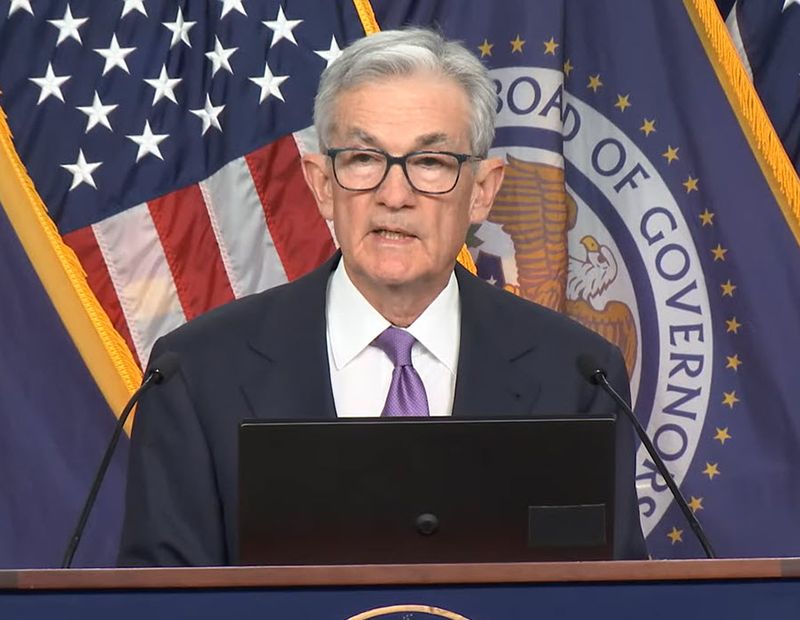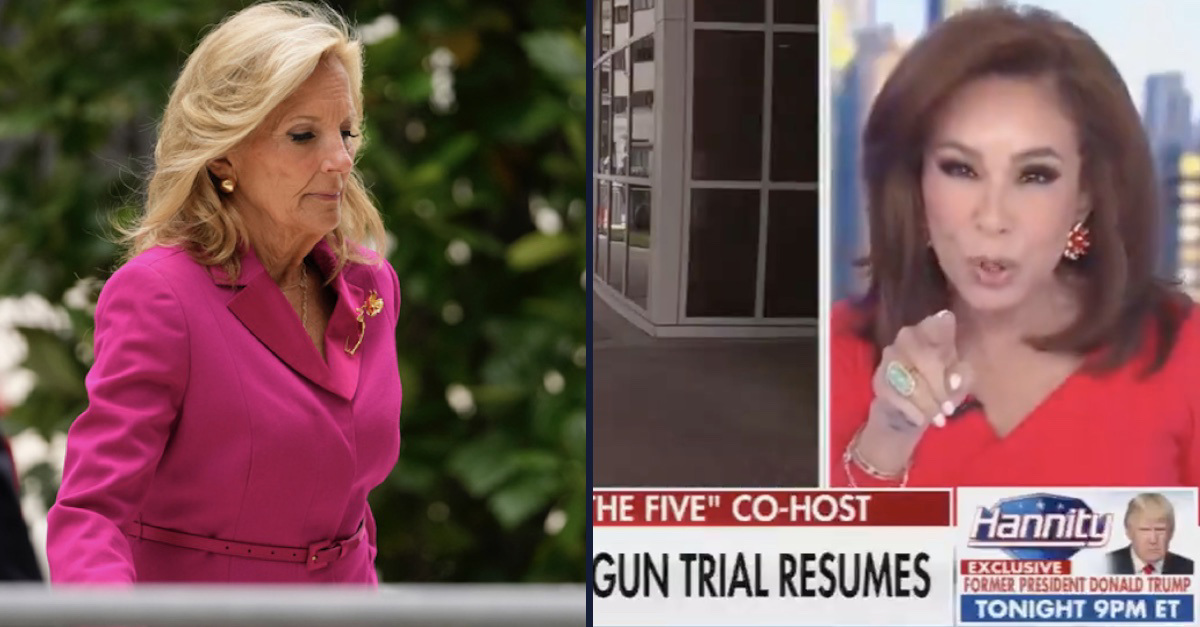Trump's Trade Deal With Britain: A Closer Look At The Negotiations

Table of Contents
Brexit fundamentally reshaped the UK's trading landscape, necessitating the forging of new partnerships. Simultaneously, the Trump administration pursued a more protectionist trade policy, making the prospect of a swift and substantial US-UK trade agreement a significant undertaking. This article aims to provide a comprehensive overview of the negotiations, analyzing their key aspects and assessing their ultimate outcome – or lack thereof.
The Ambitions of Trump's Trade Deal with Britain
Donald Trump envisioned a landmark trade deal with the UK, promising a mutually beneficial agreement characterized by significantly increased bilateral trade and substantially reduced barriers to commerce. His administration touted this as a post-Brexit "golden opportunity" to strengthen economic ties between the two nations. The projected benefits for both sides were considerable:
- Economic Growth: The elimination or reduction of tariffs and trade barriers would stimulate economic activity and create new opportunities for businesses.
- Job Creation: Increased trade volumes were expected to generate jobs in both the US and the UK, particularly within export-oriented sectors.
The potential gains were detailed as follows:
- Increased agricultural exports from the US to the UK: American farmers anticipated greater access to the UK market for products like beef and poultry.
- Improved access to the UK market for US manufactured goods: This included sectors such as automobiles, aerospace, and pharmaceuticals.
- Potential for greater investment flows between the two countries: Facilitated by a stable and predictable trade environment.
- Strengthened security and defense cooperation: Often cited as a complementary benefit alongside enhanced economic ties.
Key Negotiation Challenges and Roadblocks
Despite the initial optimism surrounding "Trump's Trade Deal with Britain," significant hurdles hampered progress. One major obstacle stemmed from differing regulatory standards:
- Food Safety and Environmental Protection: The US and the UK have different regulations, particularly regarding food safety and environmental standards, leading to substantial disagreement over mutual recognition of standards.
- National Health Service (NHS): Concerns were raised within the UK regarding the potential impact of a trade deal on the NHS, with fears that pharmaceutical prices might increase.
- Intellectual Property Rights: Protecting intellectual property was another contentious issue, with differing approaches to patent and copyright protection.
Furthermore, several practical obstacles impeded negotiations:
- Disagreements on agricultural tariffs and quotas: The US pushed for greater access for its agricultural products, while the UK sought to protect its domestic farming sector.
- Concerns about the impact on UK sovereignty: Some in the UK were wary of compromising national sovereignty through a comprehensive trade agreement.
- Challenges in balancing economic benefits with social and environmental considerations: Striking a balance between economic growth and safeguarding social and environmental standards proved difficult.
- The impact of changing US administrations on ongoing negotiations: The change in administration from Trump to Biden significantly altered the trajectory of negotiations.
The State of Play: Where Do Things Stand Now?
As of today, a comprehensive trade deal between the US and the UK, as initially envisioned under the Trump administration, remains elusive. The Biden administration has shifted its focus towards multilateral trade agreements and has prioritized addressing domestic issues. While some bilateral trade continues under existing WTO rules, the ambitious plans for a “Trump's Trade Deal with Britain” have largely stalled.
- Current level of bilateral trade between the US and UK: Trade continues but hasn't reached the levels envisioned under the initial plans.
- Key unresolved issues that remain: Many of the issues discussed above, particularly regulatory differences, remain unresolved.
- Timeline for potential future negotiations: The timeline remains uncertain, contingent on shifting political priorities and evolving global trade dynamics.
- Alternative trade partnerships for both the US and the UK: Both countries are actively pursuing trade agreements with other nations.
Alternative Trade Agreements and Their Impact
The lack of a comprehensive US-UK trade deal has prompted the UK to explore alternative partnerships. These include:
- Trade deals with the EU and other nations: The UK is actively pursuing agreements with various countries and blocs to diversify its trading relationships.
- The potential for a "mini-deal" focusing on specific sectors: More limited, sector-specific agreements are being considered as a less ambitious alternative to a comprehensive trade deal.
- The overall economic impact of alternative trade strategies: The long-term economic consequences of these alternative strategies are still being assessed.
Conclusion: Understanding the Legacy of Trump's Trade Deal with Britain
"Trump's Trade Deal with Britain" ultimately fell short of its initial ambitions. Despite the significant potential benefits, differing regulatory standards, political shifts, and a broader change in global trade priorities proved insurmountable obstacles. The US-UK trade relationship remains important, but the path forward is uncertain, relying on navigating complex trade dynamics and renewed political will. While a large-scale agreement, as initially hoped for under Trump, appears unlikely in the near future, smaller, sector-specific deals may provide more realistic avenues for increased bilateral trade. Stay informed about the evolving landscape of US-UK trade relations by following the latest developments on [link to relevant news source].

Featured Posts
-
 Anchor Brewing Companys Closure 127 Years Of Brewing History Ends
May 09, 2025
Anchor Brewing Companys Closure 127 Years Of Brewing History Ends
May 09, 2025 -
 Feds Rate Hike Pause A Different Approach To Global Central Banks
May 09, 2025
Feds Rate Hike Pause A Different Approach To Global Central Banks
May 09, 2025 -
 Njwm Krt Alqdm Aldhyn Tghlbwa Ela Idman Altdkhyn
May 09, 2025
Njwm Krt Alqdm Aldhyn Tghlbwa Ela Idman Altdkhyn
May 09, 2025 -
 Trumps Selection Of Jeanine Pirro Examining The Dc Prosecutor Appointment
May 09, 2025
Trumps Selection Of Jeanine Pirro Examining The Dc Prosecutor Appointment
May 09, 2025 -
 Yemen Shipping Industry Questions Trumps Houthi Truce
May 09, 2025
Yemen Shipping Industry Questions Trumps Houthi Truce
May 09, 2025
Latest Posts
-
 Bundesliga 2 Matchday 27 Results Cologne Dethrones Hamburg
May 10, 2025
Bundesliga 2 Matchday 27 Results Cologne Dethrones Hamburg
May 10, 2025 -
 The Embrace Of Divine Mercy Religious Life And Gods Love In 1889
May 10, 2025
The Embrace Of Divine Mercy Religious Life And Gods Love In 1889
May 10, 2025 -
 Predicting Future Stock Performance Two Potential Winners Over Palantir 3 Year Outlook
May 10, 2025
Predicting Future Stock Performance Two Potential Winners Over Palantir 3 Year Outlook
May 10, 2025 -
 Cologne Climbs To Bundesliga 2 Summit After Matchday 27
May 10, 2025
Cologne Climbs To Bundesliga 2 Summit After Matchday 27
May 10, 2025 -
 Stock Market Prediction Will These 2 Stocks Beat Palantir In 3 Years
May 10, 2025
Stock Market Prediction Will These 2 Stocks Beat Palantir In 3 Years
May 10, 2025
